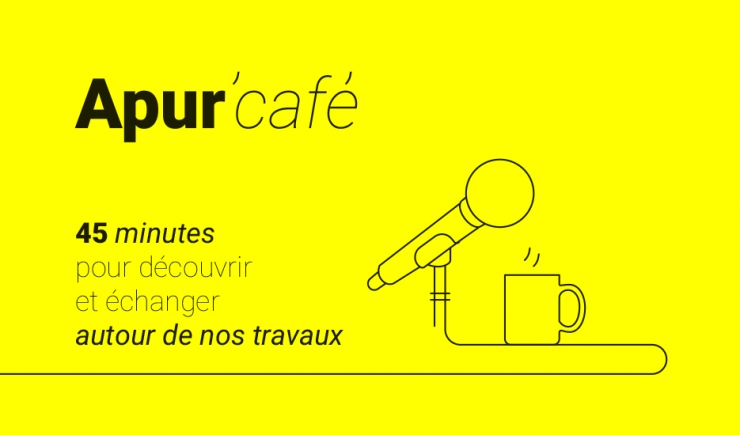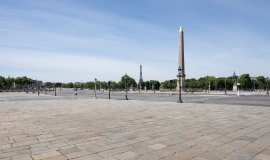
The first wave of Covid-19 severely affected the Paris area during the first six months of 2020. In this context the Paris Urbanism Agency (Apur) undertook a task aimed at documenting the impact of the health crisis on Paris and on Parisians from March to July 2020, by means of a panoramic overview: the changes in the population present, air and noise pollution, shops and facilities remaining open, children being cared for in schools, people hospitalised, citizen initiatives.
In Paris the worsening of the health situation caused 2,000 excess deaths between 2nd March and 10th May compared with the same period in 2019 (+81%). Lockdown resulted in there being fewer people present which was more accentuated in central and western districts of Paris with in particular, an almost 0% rate of use of office buildings. These first months of the crisis also enabled more positive realities to emerge such as a decrease in sound and air pollution, the coordination of mobilised players during the different phases, the flexible management of certain facilities which were able to open to children or be used to make meals for the needs of health care workers. The study also describes new uses of public space (sports activities under lockdown, terraces being extended, temporary cycle paths) which were put in place and the great number of citizen initiatives.
At the time of this document’s publication the health crisis provoked by Covid-19 is not over. A new lockdown began on 30th October 2020 in response to the epidemic accelerating again, marking a second phase in the crisis. The analysis of the different stages of the first wave can provide initial lessons upon which to draw in order to face what follows and also indicate ways for preparing for future crises (other epidemics, floods, fires or even terrorist attacks). These new approaches can contribute to developing the resilience of Paris and Parisians in times of crisis and beyond.
The preparation of this web café was based on the study “March-July 2020. Paris faces the Covid-19 crisis - first Elements of Analysis”.
Presented by:
- Émilie Moreau, Director of studies - urbanist
- Martin Wolf, Study manager - urbanist
- Patricia Pelloux, Deputy Director
Publication carried out by :
Mehdi Bouzemarene, Martin Wolf, Émilie Moreau, Jean-François Arènes, Julien Gicquel, Florence Hanappe, Stéphanie Jankel, François Mohrt, Vincent Nouailhat, Patricia Pelloux, Guylène Randal, Olivier Richard and Sandra Roger.
Cartography and statistical processing:
Marie-Thérèse Besse, Christine Delahaye, Anne Servais.

